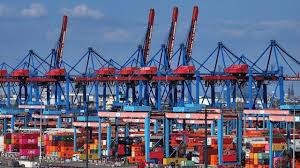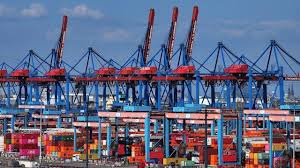Italy pledges cash to support Tunisia amid uncertainty

Rome: Italy will invest €110 million ($118.4 million) in Tunisia in a bid to shore up stability in the North African country, its foreign minister announced.
Speaking on the sidelines of the Foreign Affairs and Defense Council in Brussels, Antonio Tajani said the money would be transferred via the Italian Agency for Development Cooperation and that he hoped further funding would be approved by the International Monetary Fund.
Italy has been pushing the IMF to unblock a $1.9 billion loan to Tunisia over fears that it could be destabilized without financial assistance, with significant consequences for Italy’s energy supplies and the flow of migration to Europe.
“We are in constant contact with the Tunisian government,” Tajani said. “I hope that the IMF will reach an agreement with the Tunisian President Kais Saied to ensure stability.”
International opposition to bailing out Tunisia centers around fears that Saied, who has drawn ire over constitutional changes, crackdowns on political opponents and his recent rhetoric about sub-Saharan migrants in his country, cannot be trusted to agree to significant reforms, let alone enforce them.
“It is important that reforms are made because funding is linked to reforms, and to prevent (Islamist) terrorism from appearing in North Africa,” Tajani said. “The fundamental problem is that of stability in North Africa and Tunisia.”
Tunisia is vital to Italy’s energy security, as part of the route of the Trans-Mediterranean Pipeline, which delivers gas to Italy and Central Europe from Algeria.
In 2022, the EU granted €300 million for the construction of an €850 million electricity interconnector project, ELMED, to link Italy to Tunisia’s growing solar farm industry.
Tunisia is also the staging post for significant numbers of migrants attempting to reach Europe via the Italian peninsula from North Africa.
Saied recently prompted a surge in sub-Saharan migrants leaving his country for Europe after accusing them of changing “the demographic composition” of Tunisia and alleging they were responsible for an uptick in crime.
This in turn has resulted in numerous people suffering violence or facing eviction and deciding to cross the Mediterranean.
Data from the Italian Ministry of the Interior indicates that crossings from Tunisia to Italy are up 788 percent from the same period last year, with 12,083 people landing on Italian shores from Jan. 1 to March 13 — a third of the total number who made the trip in 2022.
Laurence Hart, director of the International Organization for Migration’s Mediterranean coordination office, told Italian outlet Agenzia Nova that migrants who would once have found work in Tunisia were being lured to Europe by the country’s growing instability and hostility and by the promises of people-traffickers.
“Migrants leaving Tunisia come from very specific countries, which, looking at the statistics…are the Ivory Coast and Guinea. These are countries with which Tunisia has an agreement on visa-free arrivals,” he said.
“On the one hand, this stimulates regular migration, because many sub-Saharan (Africans) are regularly employed in the various sectors of the Tunisian economy. On the other, it obviously leaves room for many intermediaries who play on the lack of information or on distorted information for their own personal gain.”





